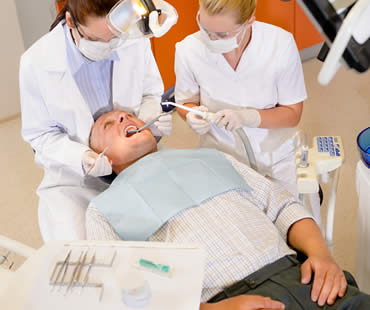Your third molars, or wisdom teeth, are usually the last to make their appearance in your mouth. Some people don’t even have them break through at all. Whether or not they erupt, they can wreak havoc in your mouth if there isn’t enough room for them. If they become impacted, removal becomes even more important.
Your dentist will monitor your wisdom teeth through examinations and X-rays, and will recommend extraction if it appears they may cause any complications. Some dentists suggest removing them even if they aren’t impacted, as they can be difficult to clean and therefore prone to decay. Wisdom teeth may even get infected, requiring immediate medical attention. Symptoms of infected wisdom teeth can include:
- Pain in the tooth and gums
- Gum bleeding
- Gum inflammation
- Swelling in the face and jaw
- Headaches
- Bad breath
If your dentist says you need to have your wisdom teeth extracted, don’t put it off because it is better to have them removed before further complications occur. Usually, you will be referred to an oral surgeon for extraction. If only one tooth is involved, local anesthesia may be sufficient. The removal of multiple wisdom teeth typically requires general anesthesia, and is a day surgery so that you can return home afterwards.
It is important for you to follow your doctor’s instructions after tooth extraction to avoid problems. Your activities might be restricted for the first day or two, ice or heat can be helpful, and care should be taken if stitches are present. You will also be given a list of foods that are suggested during your recovery. If you follow all of your doctor’s advice, you can be expect to return to your normal activities soon and no longer have to worry about any problems those teeth might cause.
If you live in the Lawrence MA area contact us today





